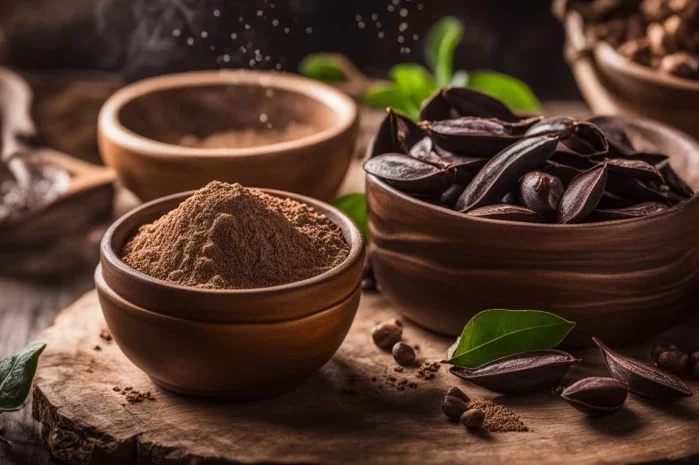Many people struggle with falling asleep at night, whether it’s due to stress, anxiety, or other factors. As a result, many seek natural remedies to help improve their sleep. One such remedy that has gained attention over the years is cocoa, a beloved ingredient in many desserts and beverages. But can cocoa help you sleep? In this article, we’ll dive into the science behind cocoa and sleep, exploring its potential benefits, the best ways to consume it, and how it compares to other sleep aids.
The Link Between Cocoa and Sleep
Cocoa, the key ingredient in chocolate, contains a range of compounds that might impact your sleep. While it’s commonly associated with boosting energy due to its caffeine content, cocoa also has several properties that could promote better sleep when consumed at the right time and in the right form. Understanding how cocoa affects sleep requires a closer look at its chemical makeup.
The Role of Magnesium
One of the most important minerals found in cocoa is magnesium. Magnesium plays a vital role in supporting sleep because it helps relax the muscles and calms the nervous system. It has been shown to regulate melatonin, the hormone responsible for controlling sleep cycles. In addition, magnesium promotes the activity of GABA (gamma-aminobutyric acid), a neurotransmitter that helps quiet the brain and body, making it easier to fall asleep.
Magnesium is often referred to as nature’s tranquilizer because it helps induce a calming effect on the body. Cocoa is a natural source of magnesium, and consuming it can help you feel more relaxed, especially if you struggle with sleep-related issues like insomnia.
Cocoa’s Theobromine and Caffeine Content
Cocoa also contains theobromine, a stimulant that is chemically similar to caffeine. Theobromine can have a mild stimulating effect, especially if consumed in large amounts. However, the levels of theobromine in cocoa are generally lower than those in coffee, which means that, for most people, cocoa won’t cause the same level of alertness or disrupt sleep in the same way that caffeinated beverages can.
For those who are sensitive to caffeine, it’s important to be mindful of the amount of cocoa consumed, particularly in dark chocolate, which tends to have higher levels of theobromine. However, most people can enjoy a cup of warm cocoa in the evening without it significantly affecting their ability to fall asleep.
The Effect of Cocoa on Serotonin
Cocoa also contains compounds that can help boost serotonin levels in the brain. Serotonin is a neurotransmitter that influences mood and relaxation. Higher serotonin levels are often linked to feelings of well-being and happiness, making cocoa a natural mood enhancer. Serotonin is a precursor to melatonin, the sleep hormone, which means that increasing serotonin levels can indirectly support better sleep by helping your body produce melatonin at the right time.
In addition to serotonin, cocoa contains flavonoids, which are antioxidant-rich compounds that have been linked to improved blood flow and brain function. These flavonoids may help improve your ability to relax and unwind before bed, contributing to a more restful night of sleep.
Cocoa as a Sleep Aid
When it comes to using cocoa as a sleep aid, timing and preparation are key. Drinking cocoa too late at night, especially if it’s made with high levels of sugar or contains caffeine, might interfere with your sleep. However, when consumed in moderation and prepared thoughtfully, cocoa can become a calming bedtime ritual that promotes relaxation and restful sleep.
How to Make Sleep-Inducing Cocoa
To maximize the sleep-promoting benefits of cocoa, consider making a calming, low-sugar hot cocoa drink before bed. Here are some tips for preparing cocoa that may enhance its sleep benefits:
Choose dark cocoa: Dark chocolate and unsweetened cocoa powder are richer in magnesium and flavonoids. They also contain less sugar than milk chocolate, which can spike blood sugar levels and disrupt sleep.
Add a touch of honey: Honey is a natural sweetener that can promote relaxation by raising insulin levels slightly, which helps tryptophan (an amino acid that boosts serotonin) enter the brain.
Use a non-dairy milk: Almond milk, oat milk, or coconut milk are great alternatives to cow’s milk, especially if you’re sensitive to dairy. These milks can also contain magnesium, further supporting your sleep.
Include a pinch of cinnamon or nutmeg: Spices like cinnamon and nutmeg have natural calming properties and can enhance the flavor of your cocoa. They also help regulate blood sugar levels, ensuring that you don’t experience an energy crash later in the night.
Opt for unsweetened or low-sugar options: Excessive sugar can cause blood sugar spikes, leading to increased wakefulness or disrupted sleep patterns. Keeping sugar to a minimum will ensure that the cocoa’s sleep-inducing properties aren’t undermined by an energy boost.
Cocoa vs. Other Sleep Aids
Cocoa is often touted as a natural sleep aid, but how does it compare to other popular remedies? Let’s take a look at how cocoa stacks up against other substances commonly used to improve sleep.
1. Melatonin Supplements
Melatonin supplements are a widely used method to help people fall asleep, particularly for those who struggle with circadian rhythm disorders or jet lag. Melatonin is the hormone that tells your body when it’s time to sleep. While melatonin supplements can be effective for some people, they can cause drowsiness and may not work for everyone.
Cocoa, by contrast, helps increase serotonin levels, which then convert to melatonin, offering a more natural way to encourage sleep. Cocoa’s relaxing effects are more gradual, making it a gentler sleep aid compared to melatonin supplements.
2. Chamomile Tea
Chamomile tea is another popular natural sleep aid, known for its mild sedative effects. Chamomile contains apigenin, an antioxidant that binds to specific receptors in the brain to reduce anxiety and promote relaxation. While chamomile tea has been shown to help improve sleep, cocoa may have the edge for those who also want the additional benefits of magnesium and serotonin boost.
3. Valerian Root
Valerian root is another herbal remedy commonly used to alleviate insomnia and promote relaxation. It is often found in sleep supplements and teas. While valerian root can be effective for some, it can also cause grogginess the next day. Cocoa is much gentler and less likely to cause lingering drowsiness.
4. Warm Milk
The classic remedy of warm milk has long been associated with improved sleep. This is partly due to the presence of tryptophan, an amino acid found in milk that helps produce serotonin. While warm milk may work for some, cocoa is a more flavorful and enjoyable option that also contains magnesium and antioxidants, potentially enhancing its sleep-promoting effects.
Potential Side Effects of Cocoa
While cocoa is generally safe for most people, there are some potential side effects to consider:
Caffeine sensitivity: If you’re particularly sensitive to caffeine, even the small amount in cocoa might affect your ability to fall asleep. It’s best to consume cocoa earlier in the evening if you are sensitive to stimulants.
Sugar content: Some cocoa products, especially pre-packaged mixes, contain a significant amount of sugar. Too much sugar before bed can cause an energy spike and interfere with sleep.
Allergies: Some people may have allergies to cocoa or the ingredients used in cocoa preparations. Always check the ingredient list if you’re prone to allergies.
Conclusion
Cocoa can indeed help you sleep, especially when prepared thoughtfully and consumed in moderation. Thanks to its magnesium content, ability to boost serotonin, and mild stimulating effects, cocoa can be a natural and enjoyable way to promote relaxation and improve your chances of getting a good night’s sleep. When consumed in the form of a warm, low-sugar beverage made with dark cocoa and non-dairy milk, it can help prepare your body for rest, making it an excellent addition to your nighttime routine.
While it may not work as quickly or dramatically as some other sleep aids, cocoa offers a gentle and holistic approach to improving sleep quality. It’s an enjoyable alternative to pharmaceutical sleep aids, and its calming effects can be a delicious and comforting way to wind down before bed.
Related topics:

























